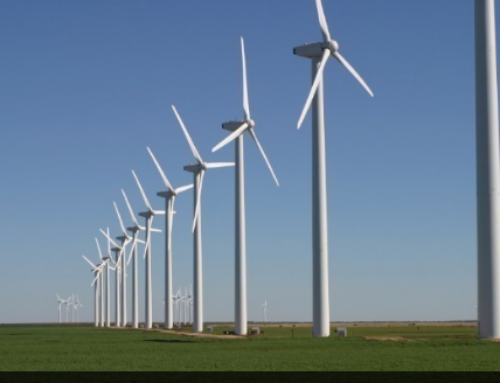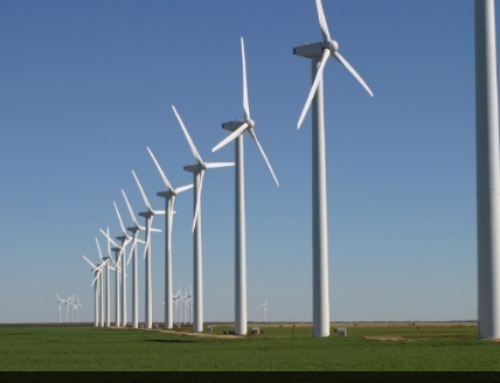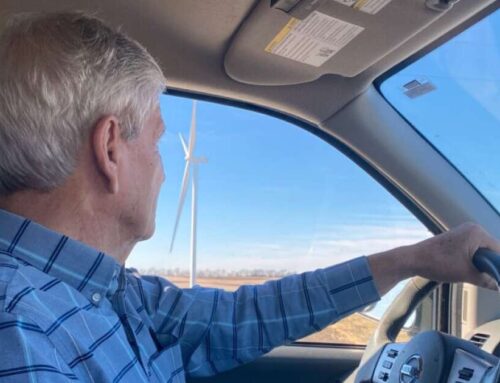Happy 55th birthday, Earth Day — Celebrate by doing your part and help protect our environ
April 21, 2025
Earth Day turns 55 on Tuesday, and anyone can mark that milestone by making choices that divert waste from landfills and advocating for the environment.
The Pennsylvania Resources Council noted in a news release that the Environmental Protection Agency estimates the average American produces 4.4 pounds of waste each day. Wasted food accounts for the largest portion of American trash by weight, more than 66 million tons a year.
This year’s observance becomes especially meaningful, many activists say, because of the Trump administration’s mission of gutting environmental agencies and regulations that have been in place for decades — in part thanks to Earth Day creators — to protect the environment.
PRC Deputy Director Sarah Alessio Shea said her organization has been focused on diverting and reducing waste from landfills for years. Individuals can help with some simple measures to aid that cause.
She stressed that most Allegheny County residents have access to curbside recycling, with more municipalities adding glass collections again to those pickups, and they should take advantage of it. Not only does that effort help the environment, but also it brings economic benefits. For example, the region has seen its glass recycling businesses grow over the past several years, meaning jobs have been created to staff them and revenue added to governmental treasuries.
Shea urged people to focus on what they bring into their homes, especially single-use materials and food in containers that can’t be recycled. “You have to think I am going to have to get rid of this at some point,” she said.
That starts with seeking recyclable containers for food, for example, and considering patronizing a refillery for lotions, hand and laundry soap, cleaning supplies, creams and more. Some of these businesses have sprung up in Western Pennsylvania, including some offering home pickup and delivery services for small fees. “Just like the old milkman system,” Shea said.
At the grocery store she avoids prepackaged salads, picking up fresh lettuce instead, and purchasing peanut butter, ketchup and mayonnaise in glass to start.
“Personally, I see where I can convert things in plastics to glass,” she explained. “Glass is forever and ever recycling. We have a great market for glass in our region.”
The other method is being thoughtful with purchases, including clothing and building materials. Shea is an avid vintage shopper — “It is super fun and affordable” — and noted Construction Junction is a great source for building materials for all. Realizing at some point these items will have to be disposed of, shopping this way means people are “not impacting the generation of new materials.”
PRC promotes composting, whether residents live in their own homes or in a rental property. “Consider how much you can reduce food waste — banana peels, potato peelings. It all adds up over a year,” she said, noting, “Food waste in the landfill is a huge source of methane in our atmosphere.”
Shea said residents need indoor and backyard systems to do this. Composting containers come in all sizes, and PRC offers how-to workshops on how to start.
If residents don’t want to handle the waste, or they live in an apartment and don’t have room for a composter, businesses exist that will pick up food waste to take to their composting facilities. “They give you a bin, they pick it up, swap it out and give you a clean bin,” she said.
Another practice is saving rainwater to take care of plants and gardens. Information on starting that is available on PRC’s site, and how-to workshops are scheduled regularly. If residents can’t locate information on composting and saving water or need help setting this up before a workshop is scheduled, Shea suggests just calling or emailing the PRC, and staff will help. “We’re thinking about this every day.”
Myths persist about plastic recycling, and Shea knows that it’s difficult to avoid using plastic. In addition to not purchasing plastic as frequently, sorting out different recyclable plastic containers is a huge help to PRC’s efforts and the environment.
Volunteering and advocacy remain key for PRC. Right now the organization is working with state legislators on a bill that will raise the landfill tipping fee — money charged for waste to be dumped into landfills — from $2 a ton to $5. That fee has not changed since 1988, and Shea said raising it to $5 is a start. Those fees fund grant programs PRC can offer throughout the state for more environmental efforts.
State House Bill 620 has been reviewed in committee, and PRC is hoping for a full vote in the House of Representatives soon and then moving on to the Senate.
“We need this to expand our recycling program,” Shea said. “We’re hopeful that can be a continued conversation and try to get that moving forward.”
Those grants cover employee salaries and needed recycling equipment purchases, and the fund reimburses governmental bodies for their work corresponding to the weight of recycled materials collected.
Residents can call attention to recycling and other environmental needs by contacting local, county and state officials and bringing those issues to public meetings.
Another option is volunteering for groups such as Tree Pittsburgh, which works with governmental and other nonprofits to plant and maintain trees and tree canopies, and Allegheny CleanWays, an organization that focuses on illegal dumping on land and water.
“We are really blessed in our region to have so many passionate organizations — each taking a space and a part of our environment — energy, water, air — and really making improvements,” she said. “Support them with [your] time, [your] money, how [you] choose to do so.”
Back in 1970 the Environmental Protection Agency didn’t exist, and Congress had not passed any legal or regulatory mechanisms to protect the environment, according to the Earth Day website.
That spring, U.S. Sen. Gaylord Nelson created Earth Day to force this issue onto the national agenda. It started as a nationwide environmental teach-in organized by Nelson of Wisconsin and young activist Denis Hayes, drawing 20 million Americans on April 22 to protest pollution and advocate for environmental protection. This event spurred the creation of the Environmental Protection Agency and led to the passage of landmark environmental legislation such as the Clean Air Act and the Clean Water Act. Since 1990, Earth Day has expanded globally, with over a billion people now participating annually.
Today, that agency and the acts have been threatened with severe staff cuts and defunding by President Donald Trump’s Department of Government Efficiency effort and repeal of many legislative actions that protect the environment. Shea said individuals can write, call and email their elected federal officials to push back and join and support national advocacy groups.
The most immediate impact of this to PRC is DOGE’s freezing federal funds, including grants for projects already in progress with contracts signed for the work. It also affects staffing and managing. That is something PRC is hoping can be reversed, and Shea said PRC is grateful to have a lot of nonfederal funding supporting it.
“Our piece of the pie that is frozen is manageable at the moment,” she said, expressing dismay for other organizations and nonprofits where that is not the case.
She wants Western Pennsylvania residents to be concerned and concentrate locally. “We can still do so much despite what is going on at a higher level,” Shea said. “It’s hard to see so much progress rolled back at a time where it is so obvious we should be moving in a different direction.”
Helen is a copy editor at the Pittsburgh Post-Gazette, but she’s currently on strike. Contact her at hfallon@unionprogress.com.
Search
RECENT PRESS RELEASES
Related Post





